BTO-This is the topic of the workshop held in Phan Thiet City on April 20, organized by the Provincial Agricultural Extension Center in collaboration with the United Nations Development Program (UNDP).
Thereby, in order to continue to replicate the project activities implemented in the province and develop the digitalization of the dragon fruit supply chain in particular and the agricultural supply chain in general. Attending the workshop were representatives of the Department of Crop Production, the National Agricultural Extension Center, a number of experts, scientists... On the side of Binh Thuan province, there were leaders of a number of departments, branches, localities and related cooperatives and enterprises.
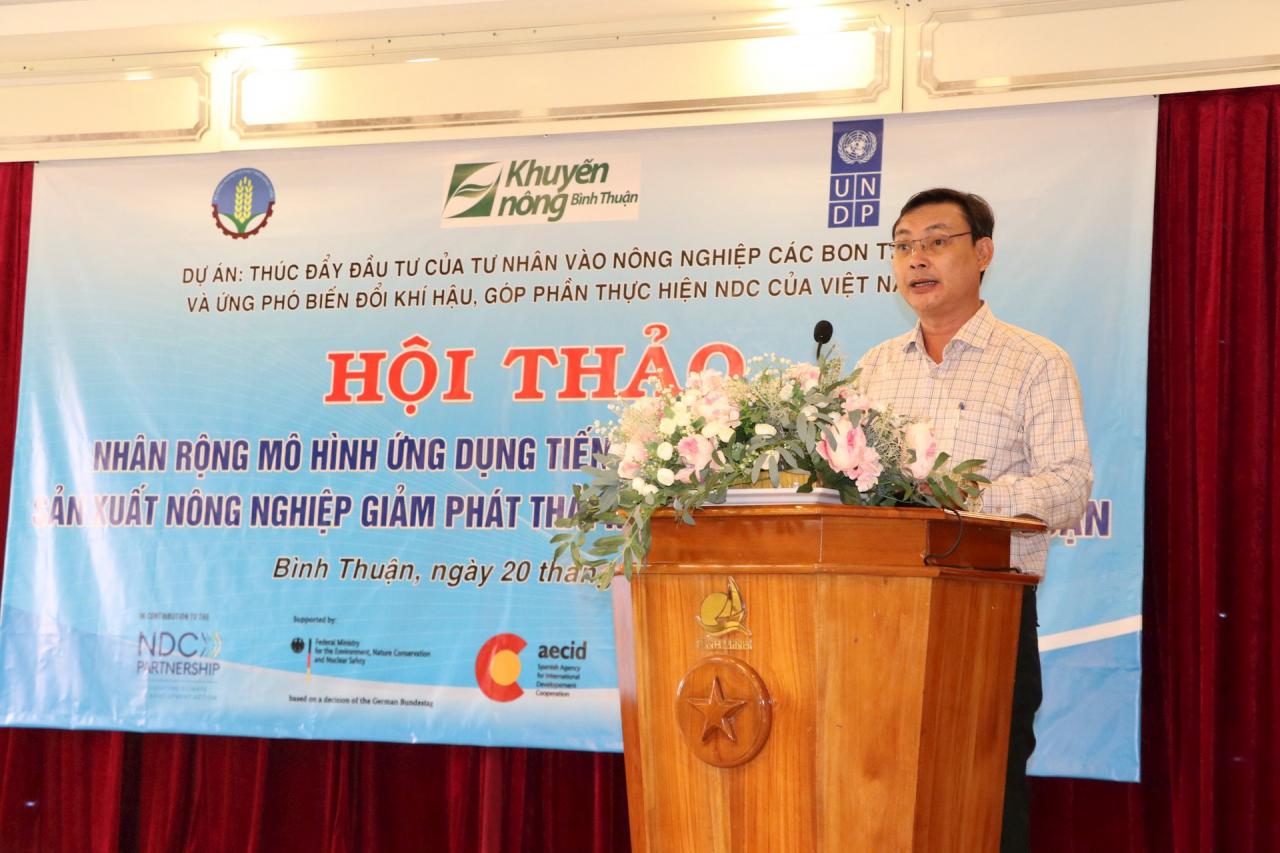
According to the provincial agricultural sector, in 2021, Binh Thuan will participate in the Project "Promoting private participation in low-carbon investment and climate change response in the agricultural sector in implementing Vietnam's NDC".
The project is implemented in 3 districts: Bac Binh, Ham Thuan Bac and Ham Thuan Nam, with 4 main activities: promoting the development and improvement of the quality of dragon fruit chain linkages towards low carbon emissions, sustainability and resilience to climate risks; promoting the development of brands for dragon fruit products in Binh Thuan province; cooperating in promoting digital transformation in dragon fruit management and production; calling for green finance and financial incentive mechanisms to invest in environmentally friendly production and processing technologies with low carbon emissions. The project is implemented in 4 cooperatives with 4,500 beneficiaries, of which the number of direct beneficiaries is over 1,000 people, prioritizing cooperatives with female leaders and youth administrators...
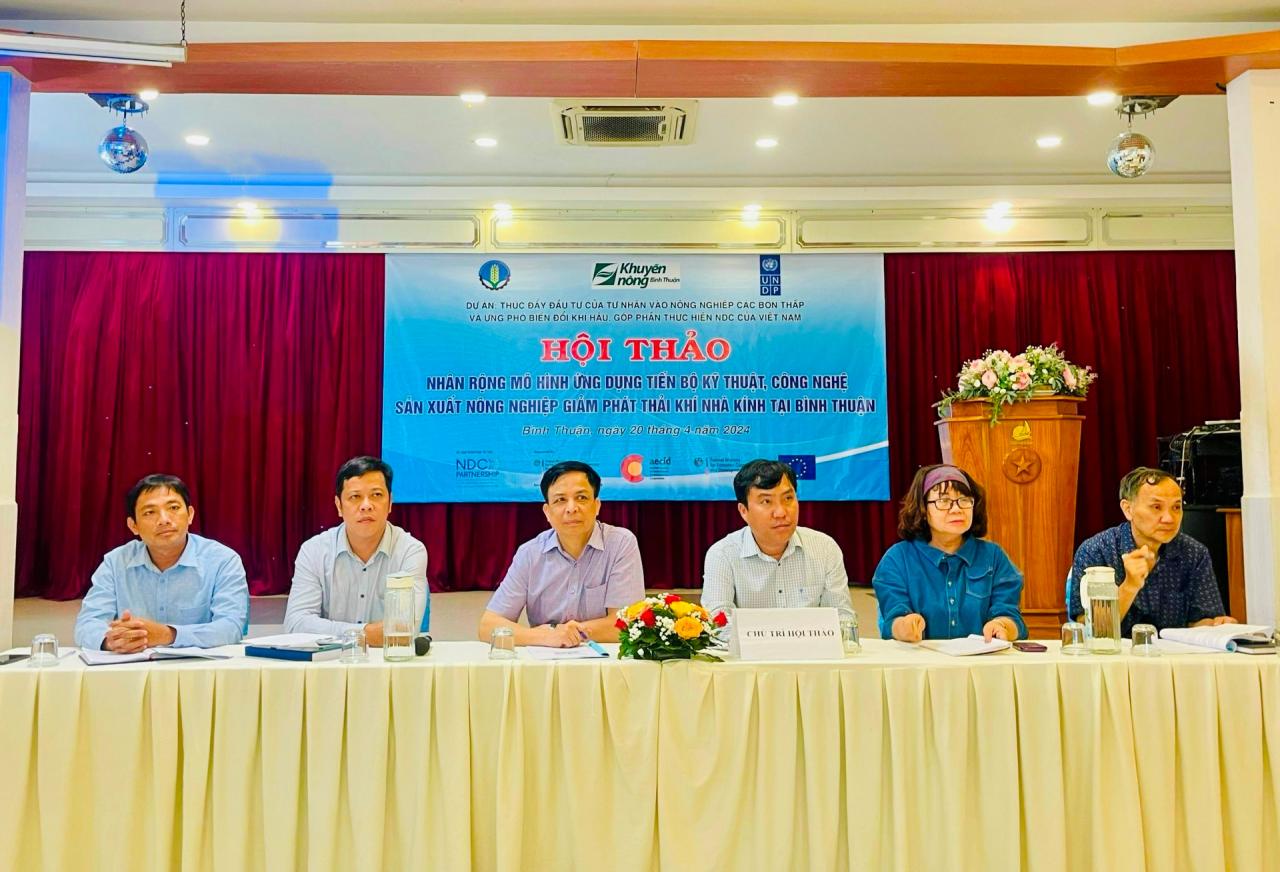
At the workshop, delegates presented and discussed contents related to the "Project for sustainable, efficient and low-emission dragon fruit development"; some solutions, technologies and models for agricultural development towards a circular economy, minimizing greenhouse gas emissions"...
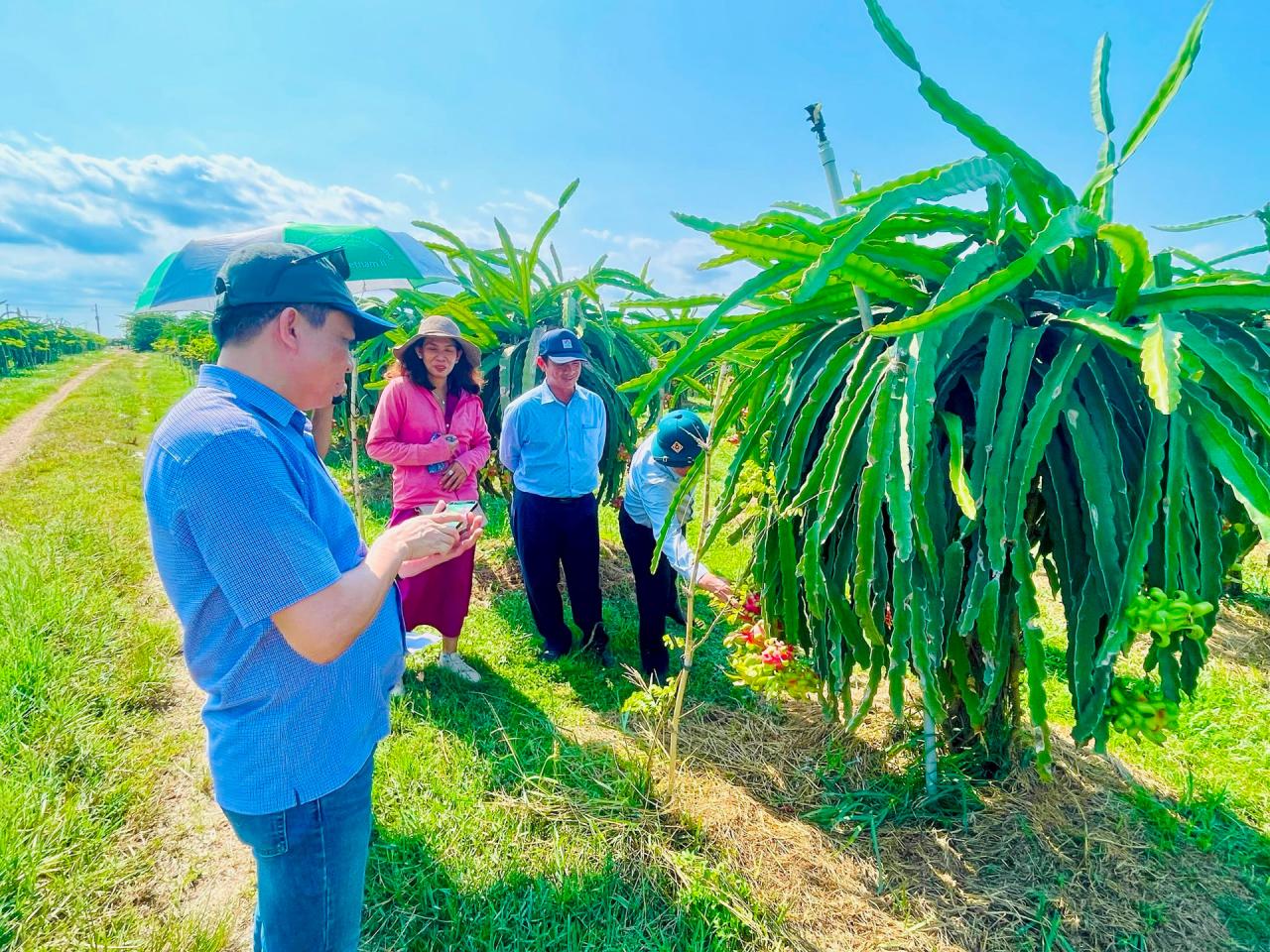
In which, the opinion of Nha Ho Cotton Research and Agricultural Development Institute emphasized that dragon fruit is facing fierce competition, so production efficiency has decreased significantly, many dragon fruit areas have been converted to other crops but are not stable and sustainable. Therefore, for dragon fruit to develop sustainably, it is necessary to review and determine the optimal growing area; gradually encourage farmers to switch to quality varieties to increase competitiveness. At the same time, apply solutions to adapt to climate change in cultivation such as off-season exploitation with the Chinese market, pay attention to processing technology and deep processing of dragon fruit...
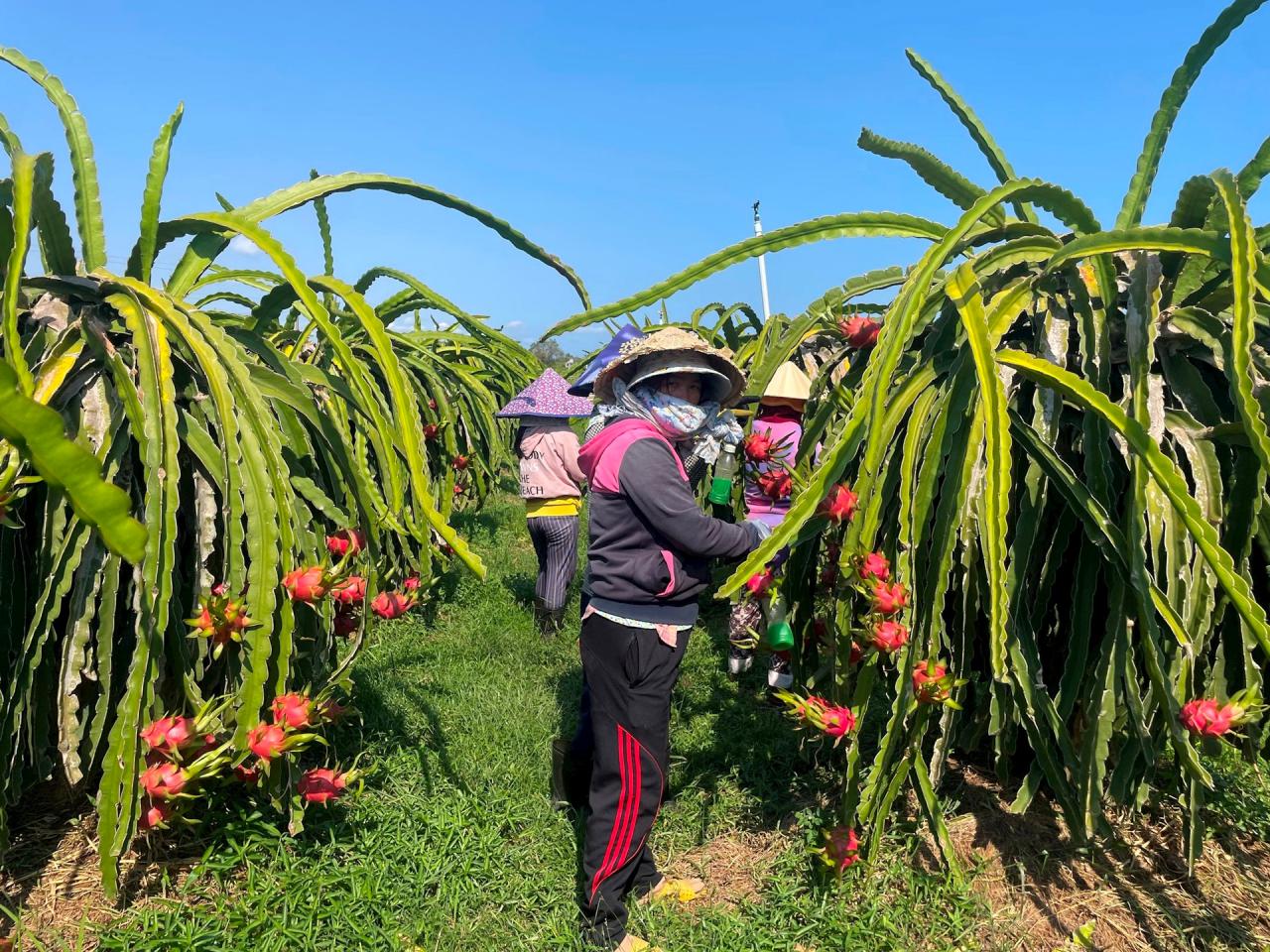
Delegates also pointed out the challenges for the development of the dragon fruit industry today, including unstable quality, mainly fresh products, simple processing technology and small scale... leading to inability to access markets with high added value. Therefore, the proposed solution is to issue codes for growing areas and support production according to GAP processes. At the same time, invest in a synchronous logistics infrastructure system for dragon fruit...
Within the framework of the workshop, delegates visited the model of applying digital agriculture and applying technological advances to promote dragon fruit production to reduce emissions at Phu Hoi Organic Dragon Fruit Service Cooperative (Ham Thuan Bac).
Source


![[Photo] President Luong Cuong presents the 40-year Party membership badge to Chief of the Office of the President Le Khanh Hai](https://vphoto.vietnam.vn/thumb/1200x675/vietnam/resource/IMAGE/2025/5/19/a22bc55dd7bf4a2ab7e3958d32282c15)

![[Photo] General Secretary To Lam attends the conference to review 10 years of implementing Directive No. 05 of the Politburo and evaluate the results of implementing Regulation No. 09 of the Central Public Security Party Committee.](https://vphoto.vietnam.vn/thumb/1200x675/vietnam/resource/IMAGE/2025/5/19/2f44458c655a4403acd7929dbbfa5039)

![[Photo] Panorama of the Opening Ceremony of the 43rd Nhan Dan Newspaper National Table Tennis Championship](https://vphoto.vietnam.vn/thumb/1200x675/vietnam/resource/IMAGE/2025/5/19/5e22950340b941309280448198bcf1d9)
![[Photo] Close-up of Tang Long Bridge, Thu Duc City after repairing rutting](https://vphoto.vietnam.vn/thumb/1200x675/vietnam/resource/IMAGE/2025/5/19/086736d9d11f43198f5bd8d78df9bd41)












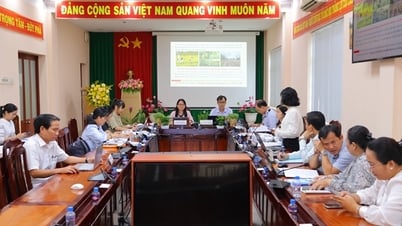
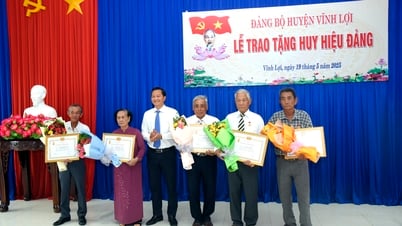
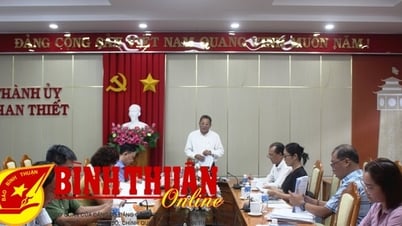

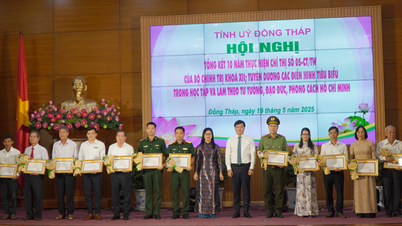
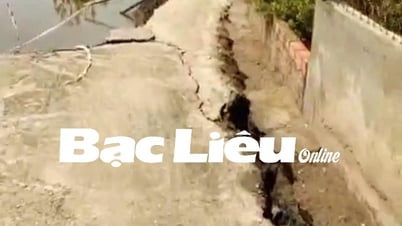











![[Photo] Prime Minister Pham Minh Chinh inspects the progress of the National Exhibition and Fair Center project](https://vphoto.vietnam.vn/thumb/1200x675/vietnam/resource/IMAGE/2025/5/19/35189ac8807140d897ad2b7d2583fbae)














































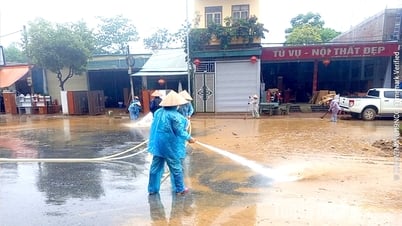

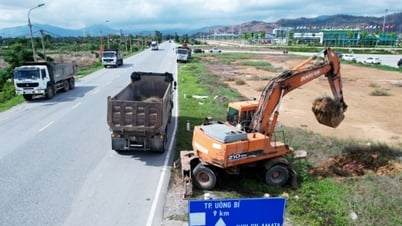

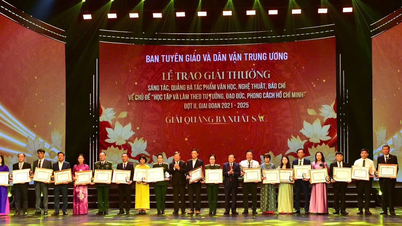







![[VIDEO] - Enhancing the value of Quang Nam OCOP products through trade connections](https://vphoto.vietnam.vn/thumb/402x226/vietnam/resource/IMAGE/2025/5/17/5be5b5fff1f14914986fad159097a677)



Comment (0)